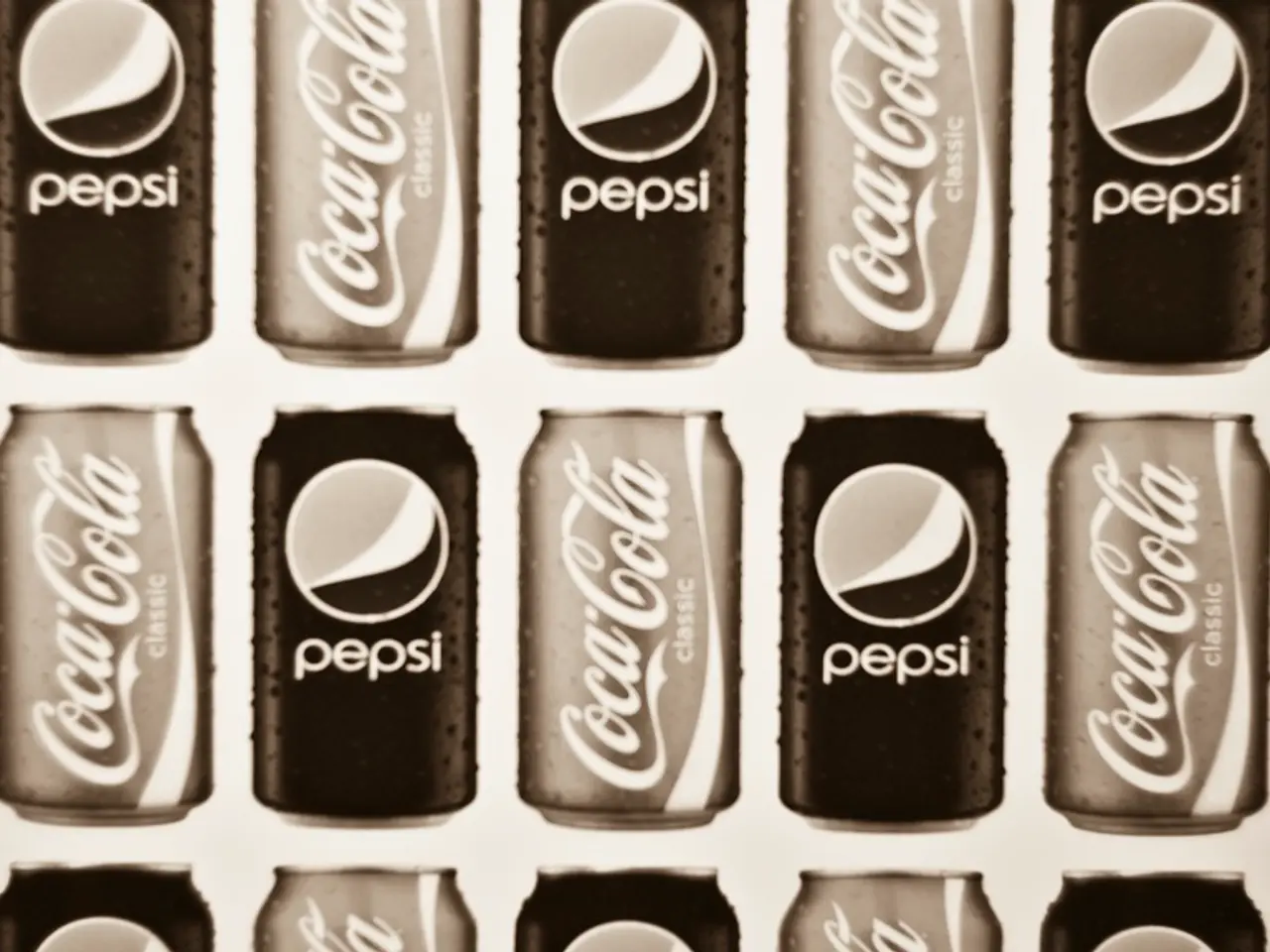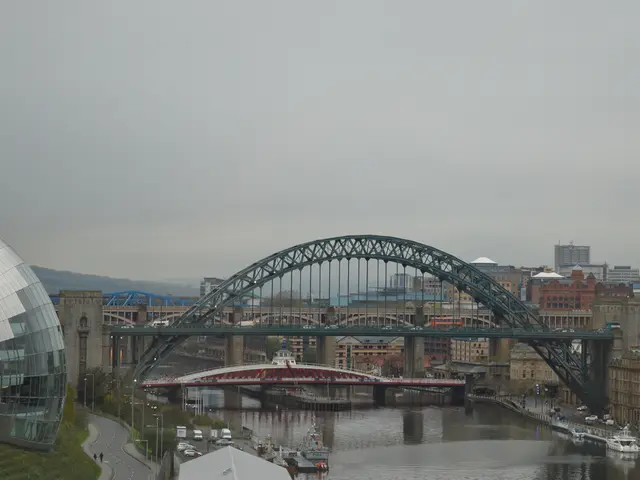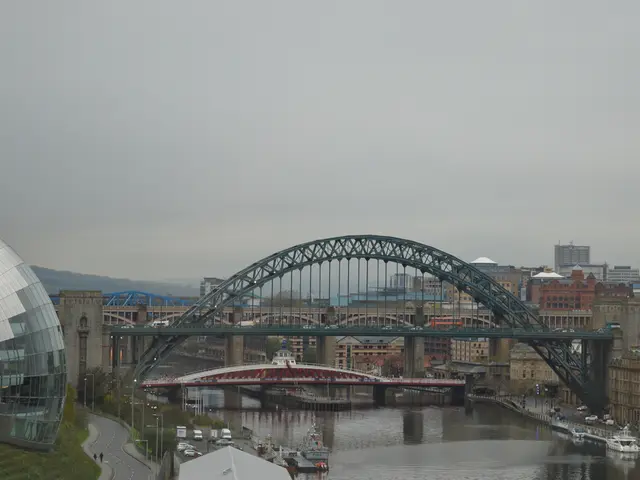Increasing recycled content by 15% and decreasing virgin plastic use by 5% is PepsiCo's planned action for the year 2024.
In a significant stride towards environmental responsibility, PepsiCo revised its packaging targets in May, reflecting the limitations outside the company's control. The revised targets are part of PepsiCo Positive, a sustainability strategy that encompasses Positive Agriculture, Positive Value Chain, and Positive Choices, as outlined in the 2024 ESG Summary.
One of the key challenges PepsiCo faces is the lack of well-designed Extended Producer Responsibility (EPR) systems globally. Recognising this, the company collaborates with the Science Based Targets initiative (SBTi) to improve the sustainability of its packaging.
PepsiCo's ambitious plans include a 2% average annual reduction in year-over-year absolute tonnage of virgin plastic by 2030. The company also reported a 15% increase in recycled plastic across its primary packaging in key markets between 2023 and 2024. To further reduce plastic waste, PepsiCo plans to phase out hard-to-recycle materials like non-recyclable labels.
The company's commitment to sustainability extends beyond its own operations. PepsiCo is part of the Business Coalition for a Global Plastics Treaty, working towards global regulation on packaging sustainability. In line with this, PepsiCo aims to design at least 97% of its primary and secondary packaging in key markets to be reusable, recyclable, or compostable by 2023.
PepsiCo's CEO, Ramon Laguarta, emphasised that 'pep+' is an ongoing transformation that powers the entire business. This transformation is evident in PepsiCo's progress, as approximately sixty of its markets distributed at least one PepsiCo product in packaging containing rPET.
Notably, PepsiCo joined forces with the San Francisco 49ers to introduce reusable cups at Levi's Stadium, overseen by Bold Reuse. This initiative is part of PepsiCo's efforts to increase the use of reusable packaging in supermarkets.
India's decision to pass a law allowing rPET to be implemented into beverage packaging in 2023 is another step forward in global packaging sustainability regulation. However, Jim Andrew, PepsiCo's executive vice president and chief sustainability officer, acknowledged that the sustainability journey will not always be linear and that there are obstacles standing in the way of systemic changes needed to continue making progress at scale.
Tetra Pak, another player in the packaging industry, has also made strides in sustainability. The company reduced greenhouse gas emissions across its value chain by 25% since 2019, partly due to packaging solutions with lower carbon footprints. The Alliance to End Plastic Waste, a global alliance consisting of companies, governments, and NGOs, has also made significant progress. Since 2019, the alliance has reduced 239,985.48 tonnes of unmanaged plastic waste, with third parties and impact investors contributing US$610.89 million in funding.
PepsiCo's progress in 2024 shows that embedding sustainability into the company strengthens communities, the planet, and the business. The company has set new targets, including a minimum threshold of 40% recycled content for its primary plastic packaging by 2035 or sooner. As PepsiCo continues its journey towards a circular economy, it serves as an example for other companies to follow in their pursuit of sustainability.
Read also:
- Deepwater Horizon Oil Spill: BP Faces Record-Breaking Settlement - Dubbed 'Largest Environmental Fine Ever Imposed'
- Fossil fuels remain the primary energy source for heating in Baden-Württemberg
- Expansion of railway systems, implementation of catenary systems, and combating fires: SNCF adapting to the summer heatwave
- Citizen Thekla Walker, Minister, advises: "Let's focus on our own homes first"








